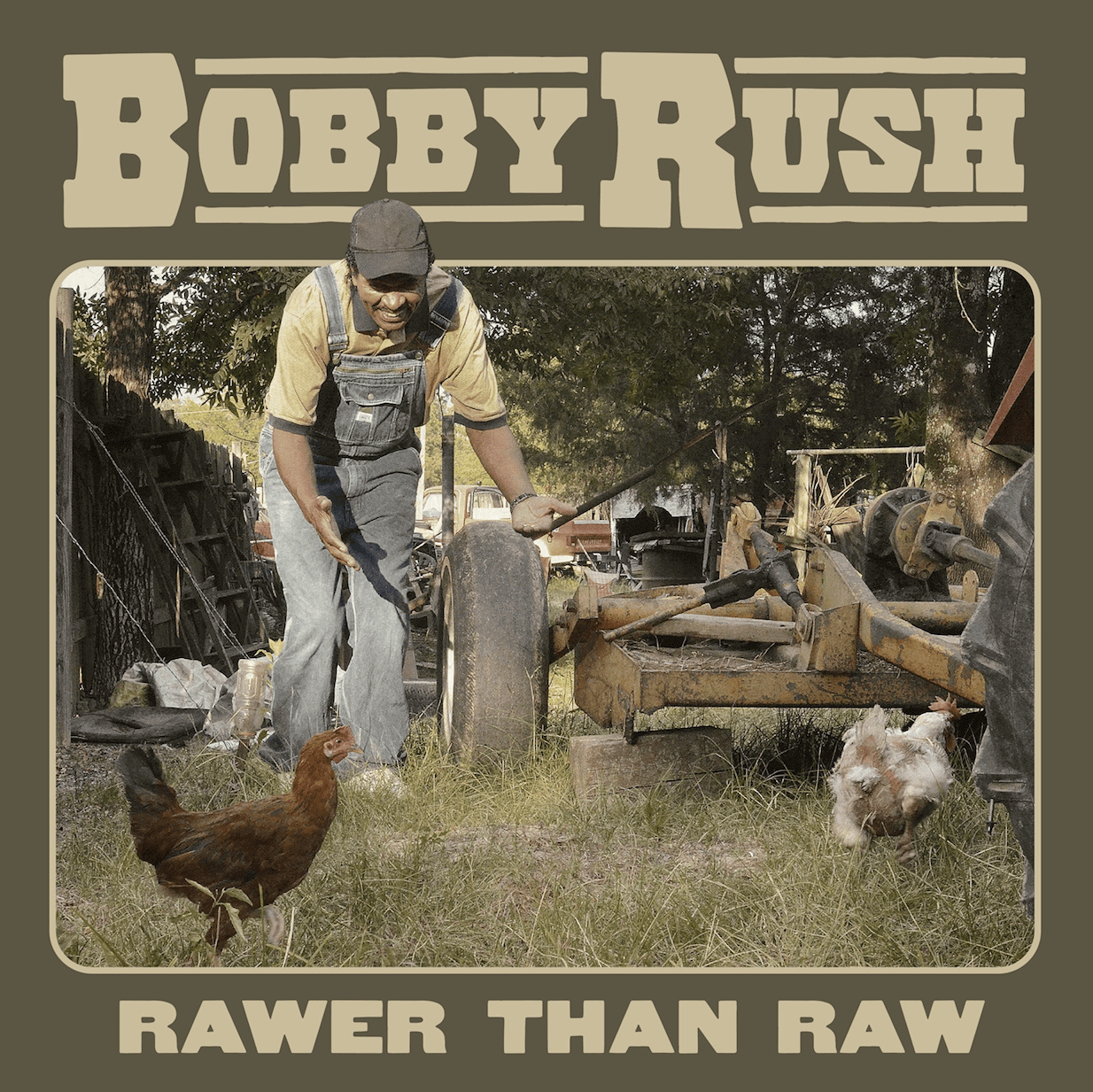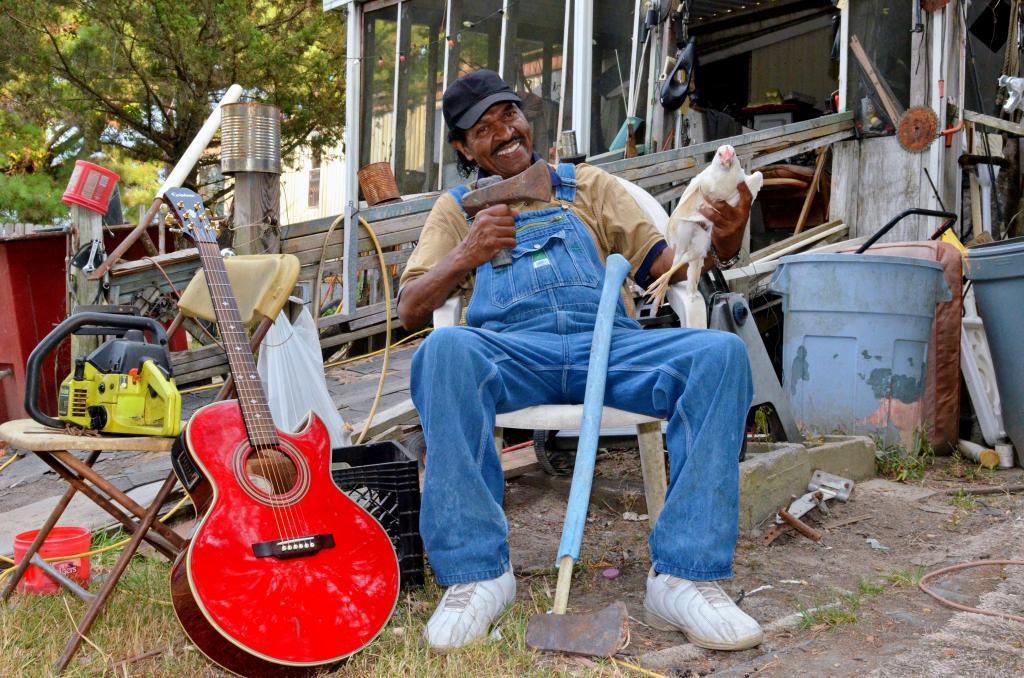“I’ve lived my life with a foot on my neck for 85 years,” says Grammy-winning bluesman Bobby Rush. “I had hoped something would happen to me as a black man in position as a black player that would be a little different for us, and then when Martin Luther King got killed, my hope got killed also.
“But then when Floyd got killed, there was some hope come to me again. It doesn’t come just from Black Lives Matter. It comes from the white people marching and saying blacks matter. That means a change in minds and hearts of people about other people.”

If ever there were an example that runs contrary to the stupidity of racial prejudice, its Bobby Rush. The one-time Grammy winner and five-time Grammy nominee is about to release Rawer Than Raw, an acoustic follow-up to 2007’s Raw. Best known for his big band chitlin circuit extravaganzas with ass-shaking hoochie girls and saucy story songs, Bobby once again proves that behind the winks and the bodacious stage antics is an artist who is a living legend, His heritage and fundamental talent is without equal. About the only man who can challenge him as living blues history at its fundamental best is Buddy Guy.
Rawer Than Raw was released August 28th on Deep Rush/Thirty Tigers Records. Recorded in Jackson, Mississippi over several years, it features five originals and six covers by by Muddy Waters, Howlin’ Wolf, Sonny Boy Williamson II, Skip James, and Elmore James. Perhaps what’s most telling about this collection is that if you gave a blindfold test to someone unfamiliar with the classic cuts, they would be unable to distinguish the Bobby Rush originals from the covers. That’s because he was THERE when all these cuts first went down. And there’s no smoke or mirrors on this LP. It’s just Bobby, his guitar and his harmonica having a Saturday rent party in rural Mississippi.
Bobby does two Howlin’ Wolf songs, “Smokestack Lightning” and “Shake for Me.” He introduced the Wolf to his second wife. “He always blamed me for that,” chuckles Bobby, “but she was a good friend of mine until she passed, and he was a good friend of mine until she passed, and he was, too. He didn’t take guff from no one. He was in the studio cutting a couple songs, and they wanted him to howl because he was known as the Wolf to howl, and he said ‘I’m not howling for no damn body and bust my gizzard.’ That’s what he would say, and he didn’t howl. The day he would howl that was the day they didn’t mess with him. When he went in to record, he just went in to sing. He didn’t howl. He’d howl Wolf when he got ready to howl.”
“Honey Bee” by Muddy Waters is another classic covered here. “I like Howlin’ Wolf performances, but I like Muddy Waters’ style because he was so dressy,” says Bobby. “He was so dap, and he was so crazy about me as a young man. I don’t know what Muddy Waters saw in me as a young teenager. I don’t know what a grown man would see in a teenager that he liked so well.
“He and Albert King I’ve never understood why they liked me, what they saw in me as an 18 to19-year old boy. They always loved me, and I’d see Albert King back 50 years ago sometimes would drive 1000 miles just to be in my company, and I’d hate to think that I didn’t show the kind of love and respect ’cause a lot of times I’d say, ‘Here comes the old man.’ When you’re 18, 19 years old, you didn’t think they was thinking, but if I love to live it over now, I’d nurture these guys’ love and affection like I nurture my mama or my mama nurtured me.”
Bobby estimates he performed the Robert Johnson song “Dust My Broom” with slide master Elmore James at least 100 times in the early ’50s. “He picked me up because I was on the hambone. I had a band I called Bobby Rush and the Four Jivers, and Elmore James was one of the guys I hired to play. He didn’t play with me steady, but he played with me.”
I asked Bobby if Elmore and Robert Nighthawk ever played together because both of them were seminal slide players who had strong influences on rock guitarists like Duane Allman and Johnny Winter. “I didn’t know them to be buddy buddies. I didn’t know that much about the two of ’em because I was too young to think these guys were superstars.”
Skip James disappeared from the blues scene for three decades until he was rediscovered by Dick Waterman. Bobby covers his “Hard Times” which he finds apropos of society’s current situation. I asked him if he knew what happened to Skip in those 30 years. “He was like most of those guys, farming and planting cotton, picking cotton and trying to survive. You know. He was like Bobby Rush.”
Bobby met Sonny Boy Williamson at Theresa’s Lounge in Chicago where he heard him perform “Don’t Start Me to Talkin.’” “Oh, man, I liked Sonny Boy Williamson. I liked a lot of the things he did, but that is one of the songs that steps out on me. I always did that song after the fact in a different place. “Don’t Start Me to Talking.” A different thing. What I did with this new CD I had was salute the guys from Mississippi. That was a hard task for me to take a few guys ’cause I like so many guys.”
If a cat has nine lives, Bobby Rush has had a lucky 13. He was never diagnosed with Covid 19, but in April he was “out of my head” with a temperature of 105, but he’s back in fighting condition now. He has hope for society’s future and intends to be around to help make that future happen.
“What’s gotta happen is people gotta change the law that you must treat a man right. We gotta find a way. Everybody knows what’s wrong, but nobody knows how to fix it. We all have some (people) in life that we like or do not like because you can have a hundred ladies and one you like for a while. I want her for a wife or one to go to bed with, whatever you have about her there is something about that person that you want to be with, that person is for you. Whatever happened in life, you can have many, many friends.”
Hardship brings out the definition of a friend with new nuances. Bobby Rush is my friend, and he speaks with the wisdom of the ages.
Order Rawer Than Raw
*Feature image Kim Welsh


